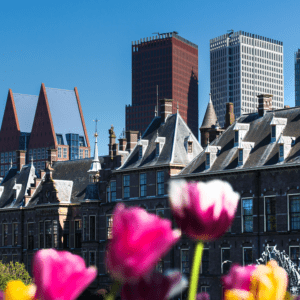 Indian hospitality industry has expressed strong disapproval and disappointment in the GoodsÊand Services Tax (GST) tax proposal for the hotel and restaurant industry in the country by the GST Council which concluded its meeting in Srinagar last week, finalizing the rates for commodities and services in the country.
Indian hospitality industry has expressed strong disapproval and disappointment in the GoodsÊand Services Tax (GST) tax proposal for the hotel and restaurant industry in the country by the GST Council which concluded its meeting in Srinagar last week, finalizing the rates for commodities and services in the country.
The GST Council has proposed the highest tax slab of 28 per cent for hotel rooms above Rs 5,000 room rental by creating a category of ÒluxuryÓ. While the GST Council has proposed Ônil’ tax for hotel rooms charging Rs 1,000 per night, hotels charging above Rs 1,000 and up to Rs 2,500 will be placed in 12 per cent GST bracket, between Rs 2,500 and up to Rs 5,000 will invite a GST of 18 per cent and all rooms above Rs 5,000 rental per night will carry a GST of 28 per cent.
Similarly, all air-conditioned restaurants will carry a GST of 18 per cent, and non-airconditioned 12 per cent. The hotel industry bodies and stakeholders have called the proposals ÒdisappointingÓ and not helping the cause of the country in attracting inbound tourists. Informing that the industry is waiting for the Òoverall schedule of service category-wise tax structure, Aashish Gupta, Consulting CEO of Federation of Associations in Indian Tourism & Hospitality (FAITH), an umbrella association all the stakeholding association in the travel, tourism and hospitality sectors, expressed dismay in creating a category of ÒluxuryÓ and clubbing the hotel industry with betting, racing and cinema industry.
The whole effort of the federation all these years has been to convince the policy makers that this industry is not luxury considering its potential in terms of creating the highest number of employment in per sqm of investment, its potential to develop infrastructure and employment in the hinterland, its worth in creating a whole capex cycle, and complete supply chain in a destination, etc., he said. Classifying this sector as luxury is Òextremely disappointing and unfortunateÓ.
ÒIt’s definitely a lost opportunity for the country in claiming its due in international tourism,Ó said Mr Gupta. ÒIt is sad that in today’s day and age the government sees Rs 5,000 as luxury,Ó said SM Shervani, former President of Federation of Hotel & Restaurant Associations of India (FHRAI). ÒIndia has to compete with its neighbouring countries. “Liquor ban, portion control and high taxation will kill the industry. The government is charging zero tax to five-star hospital rooms which charge above Rs 5,000 for their rooms. My advice to hoteliers is to give glucose free to every guest and claim to be in healthcare.Ó
Dilip Datwani, President of Hotel & Restaurant Association of Western India (HRAWI) expressing his deep disappointment in the GST rates for the industry, said that tourists will continue to skip India and prefer nearby destinations in the region. ÒThe Government should realise that while neighbouring countries like Myanmar, Thailand, Singapore, Indonesia and others levy taxes ranging from 5 to 10 per cent, we cannot afford to have these kind of complex and high GST,Ó said Mr Datwani. ÒThis is simply not viable. Tourists will simply skip India.Ó Expressing similar sentiments, Bharat Malkani, a hotelier and industry leader said that India will continue to be a costly destination for foreign tourists with high tax rates. ÒOne of the biggest hurdles for Indian hospitality and tourism, in terms of attracting international tourists is its uncompetitive tax structure,Ó said Mr Malkani.
Meanwhile, budget hotel industry has supported the tax rates finalised by the GST council between nil and 12 per cent.
Ritesh Agarwal, founder and CEO, OYO, while welcoming the rates, said that “it will ensure that the industry’s quality upgrade continues while delivering standardized accommodation to millions of middle-class travellersÓ. It will save and create thousands of new jobs which could have been impacted under higher tax-rates, he added.
Ê
Ê



















